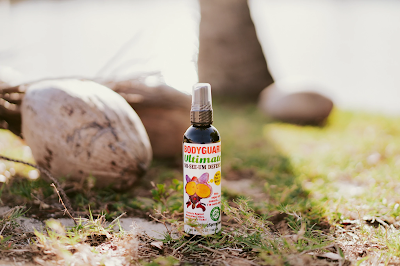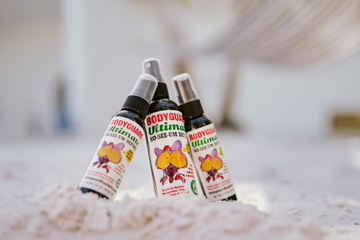Always Select Your Bodyguard Bug Spray Wisely After Proper Research
Choosing the right mosquito repellent, body bug spray for traveling can be a daunting task, will it be strong enough for high-risk Malaria areas? Will your skin have a reaction? How much mosquito repellent should you take with you? With so many different options to choose from, it can be a bit of a minefield to choose the right insect repellent for your destination. First and foremost, we recommend checking out the malaria map for your destination. The risk of Malaria and other tropical diseases can vary from one part of a country to the next, so you need to ensure you’re aware of the risks when choosing your mosquito repellent.
For Malarial areas, you should opt for a Diethyl-metamtoluamide, DEET-based bodyguard bug spray with no less than a 50% concentration to ensure you are well protected from Malaria and other tropical diseases. There are also higher concentrations currently available, but as of 2017, new Biocidal Product Regulations will mean that DEET repellents over 50% will no longer be available. 50% DEET formulas in skin insect repellent are considered as high protection and are suitable for use in countries with a risk of Malaria and other tropical diseases.
You should also consider anti-malarial medication in high-risk areas, so make sure you discuss this option with a GP or local travel clinic before traveling. For low-risk areas, where there is no risk of tropical disease, you can use a lower concentration of DEET (20–30%) bug repellent for skin or even a natural mosquito repellent. Natural mosquito repellents usually contain either Saltidin or Citriodiol, an ingredient derived from lemon eucalyptus. Natural repellents are much kinder to the skin compared to DEET repellents, so are popular among travelers with sensitive skin.




Comments
Post a Comment